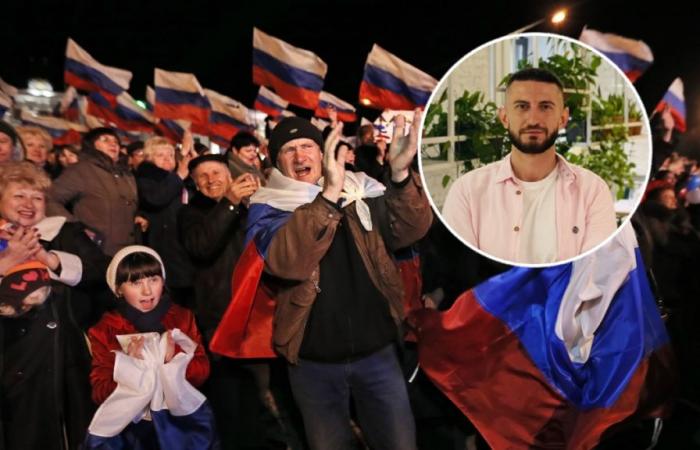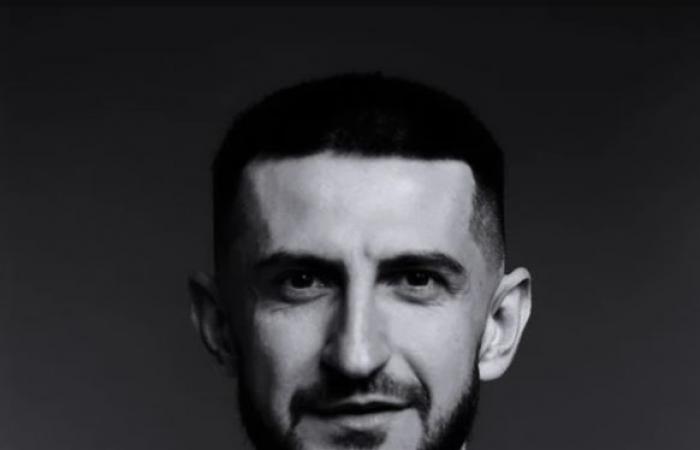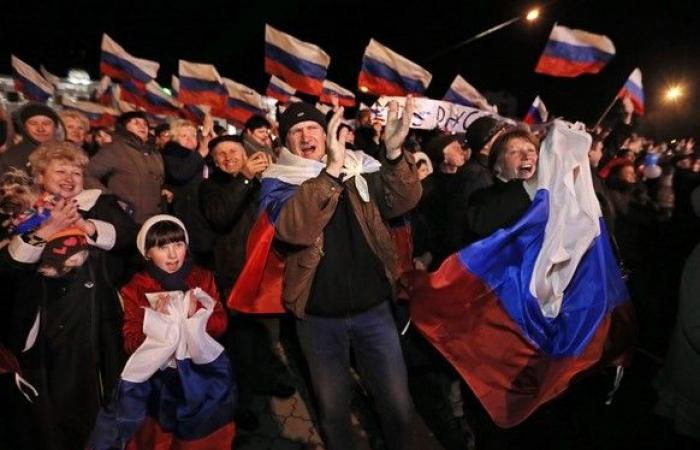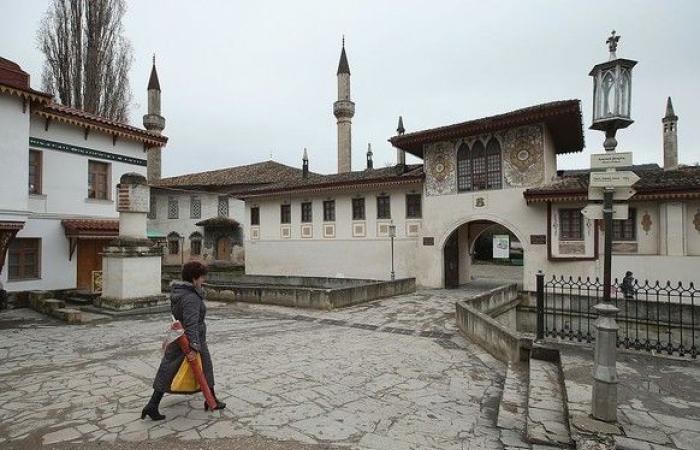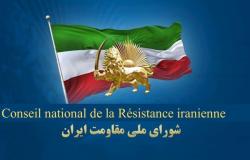Alim Aliev, human rights activist and journalist.Image: dr: alim aliev
The Crimean Tatars play a central role in the peninsula annexed by the Russians. Yet they seem almost invisible. Alim Aliev, human rights activist and journalist, today draws attention to the plight of his compatriots.
Anne-Kathrin Hamilton / watson.de
More from “International”
We rarely hear about them, but they suffer almost in silence under Russian rule, although they have been fighting for centuries for their identity, their culture and their existence. “People don’t even know that 80% of political prisoners on the peninsula are Crimean Tatars”says Alim Aliev in an interview with watson.
Moscow settles Russians on the territory
According to him, Russia’s violent conquest of Crimea on February 27, 2014, represents only the tip of the iceberg in a long history of oppression and persecution. As a reminder, since spring 2014, Crimea has been in the hands of the Russians, after this country occupied and annexed the island in violation of international law. And history repeats itself, but with a new strategy.
“Since the occupation of Crimea, around 800,000 Russians have been settled on the peninsula”
Alim Aliev
The same pattern for centuries. Already during the first annexation in 1783, the Russian Empress Catherine II had tried to push back the natives: Crimean Tatars. In 1944, dictator Joseph Stalin also deported thousands of people to Central Asia and other remote areas of the former Soviet Union – under brutal conditions. Aliev does not hesitate to talk about genocide.
People barely had time to pack their bags and were driven away by force of arms into cattle cars, reports the Bundeszentrale für politische Bildung (BPB, a German agency dedicated to political education, offering resources and programs to inform citizens). The sick and wounded, unable to move, were “liquidated”. Ditto for those who opposed the deportation order.
Alim Aliev.Image: alim aliev
Aliyev’s family was then deported to Uzbekistan, where he was born many years later, in 1988. “I don’t remember, because a year after my birth, we were able to return to Crimea.” , he says. This is where he grew up, in his new and old country. Then again – the Russians arrived.
“The last time I went to Crimea was in January 2014. When they invaded the region, I was in kyiv”
Alim Aliev
In the same year, he co-founded the Crimea SOS organization in order to draw attention to the situation of the people.
Russia suspected of serious human rights violations
Since the occupation, human rights violations have increased according to Aliev; mainly against the Tatars. Whether it is arbitrary searches, kidnappings, assassinations as well as bans on gatherings, “it has completely turned our lives upside down”.
“The Russians are isolating us more and more to prevent us from living our culture. In their eyes, we are only part of “multicultural” Crimea, but not the largest indigenous population group on the peninsula.”
Alim Aliev
As a reminder, in 1783, before Catherine II ousted them, the Crimean Tatars represented 95% of the territory’s population, according to Aliev. Today, there are around 15%.
Who are the Crimean Tatars?
They are a Muslim Turkic people, who bring together the descendants of different ethnic groups whose roots go back to Antiquity and the Mongolian nomads of the Golden Horde in the 13th century. According to the BPB, Crimea is closely linked to their national identity. For centuries, Russian and Soviet leaders have attempted to push back and eradicate the Crimean Tatars.
Russian flight and refuge in Ukraine
“An estimated 50,000 people have fled to escape Russian occupying forces. It’s a lot. They live, today, mainly in the oblasts of kyiv, Kherson or Lviv, in Ukraine,” specifies the activist. Among the exiles, we find mainly businessmen, students and journalists.
“Children are taught that Ukraine is an enemy and that Russia’s invasion of Crimea is glorious”
Alim Aliev
Crimea was once considered a vacation paradise, but the Kremlin has transformed it into a real military fortress. “This militarization stops at nothing, not even the conscience and the spirit of the inhabitants”believes Alim Aliev. In nurseries, children are dressed in Soviet army uniforms on certain “public holidays”. Russian veterans visit schools and tell their “hero stories”.
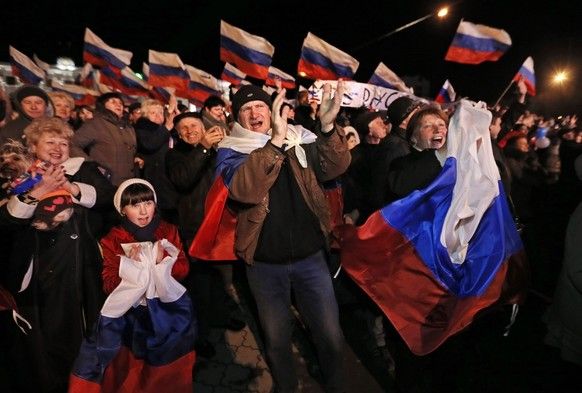
The annexation of Crimea by the Russians celebrated in 2014.Image: EPA
Clear their identity
Moscow is deliberately attacking the DNA of the Tatars and wants to replace it with a new “Russian identity”. “According to Russian propaganda, we are an extremist people.” Many people are labeled extremists or terrorists so that they can be persecuted.
“So we are not fighting against us, the people, against the Crimean Tatars, but against the terrorists. It’s more sales”
Alim Aliev
Added to this is the attack on the language. “When I was a child, a Russian who heard me speak once asked me to speak a normal language,” Aliev recalls. Tatar could be forced to disappear due to lack of speakers. In schools in the region, it is offered as a second branch at most. And Russia is also attacking cultural property. Those who do not correspond to Russian ideology are destroyed or disfigured.
Alim Aliev cites for example the Hansaray, or Khan-Saraï or even “khan’s palace” located in the town of Bakhtchissaraï in Crimea. It was rebuilt by the Russian authorities, who deliberately erased its traditional appearance.
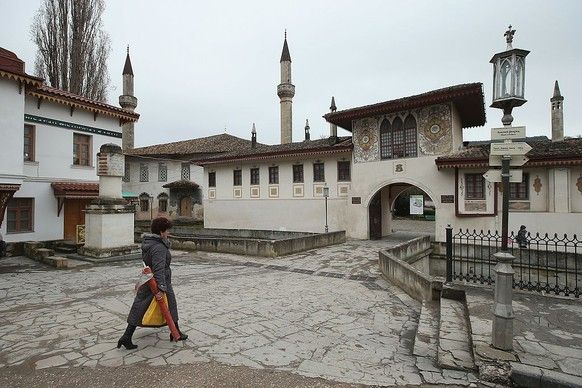
Getty Images Europe
Moscow is also rewriting history so that Crimean Tatars play virtually no role in it.
“Russia wants to wipe out my people. Like Ukrainians, we are fighting for our identity”
Alim Aliev
This desire for justice pushes the minority not to let themselves be defeated after all these centuries. The activist dreams that one day all Tatars will be able to return home and experience a renaissance of their culture and religion. In the end, we can see the fate of the Tatars as a boomerang, he believes. “We always come back to our motherland.”
All the hot news on Ukraine…
(Translated and adapted by Valentine Zenker)

